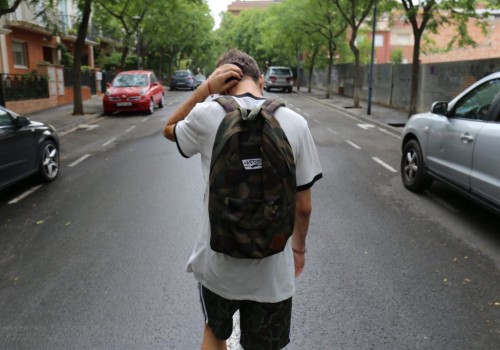The impact of overburdening a child with responsibilities


Reverse caregiving is a complex relationship characterized by role reversal, also known as parentification. When a child takes on more responsibility than is appropriate for their age, that child is at risk of becoming an anxious adult
A child who takes care of loved ones, parents or younger siblings, carries a heavy burden that they should never have to bear.Often the oldest child in the family is responsible for looking after their siblings. Phrases such as “You're the big one” or “Set a good example” should be used with caution since children and teens may be at risk for developing anxiety as adults. This risk of developing anxiety is more likely in children of divorced parents and those whose parents live with chronic problems or addictions.
The importance of childhood development
Childhood is the stage of development when the understanding and expression of emotions intensifies. Children begin to develop strategies for managing their own emotions, as well as for helping others. Around the age of seven, children will try to regulate their emotions. However, it is only at the age of nine that they will be able to control them in different situations. Puberty follows with even more noticeable changes such as mood swings, but also subtle sensitivities that can still cause stress and anxiety.
This capacity to regulate emotions prepares children for the future in terms of learning at school, creativity, self-esteem, but most of all, for stress management.
If, on top of all these changes, children also have to take on the responsibility of looking after the little ones in the house or even caring for their parents, it can be a recipe for an unfortunate outcome. During childhood, this kind of heavy lifting can threaten cognitive and emotional development, which can then carry over into their teenage years and throughout their adult lives.
Family relationships during childhood
Parentifying a child means depriving the child of the right to simply be a child, which increases the risk that the child will develop disorders in the future. This is often the case when the parents suffer from psychological challenges. For example, a mother who is having a very difficult day at work might start venting to her daughter that she is tired of having to do X task and Y request from her boss. Eventually, this becomes a form of parentification, as the parent explains and details theirs problems to the child, when the child does not yet have the skills to understand these issues.
A child can easily forget their needs and desires when they have a parent who is greatly suffering. There can be strong psychological repercussions for a child growing up in a family environment where roles are not clearly established. For example, a child may develop obsessive-compulsive disorder, questions about his or her identity, or even attempt suicide. Generally speaking, a child who sees their parent suffering will tend to try to solve the problem or at least support them to reduce their discomfort. A child cannot reason in the same way as an adult. It is therefore important to keep family relationships healthy and not to bring additional stress to the children.
Remembering childhood needs
Establishing a cooperative and attentive relationship between parent and child is necessary and will help to increase understanding of the child's needs.
Respect for basic needs, such as safety, self-esteem, belonging, and self-actualization, will help the child flourish as they develop and provide the conditions for lifelong stability.
It is important for the child to develop at their own pace and not have them take on a role that is not their own. Being aware of this issue can help a parent who feels compelled towards parentification find the help and tools they need to reset their parenting role.
Awareness
Have you ever parentified your child? Don't worry, parentification is not bad to a point, as it can be an opportunity to demonstrate responsibility and build trust with your child. However, if you see the more destructive elements to this type of relationship, that's already a step forward! Awareness is necessary to be able to recognize and change the phenomenon of parentification.
Also, your child is still young and can benefit from your changes! Know that you are a model for them. By taking the necessary steps to improve things now, you can certainly help your child grow and flourish in the future.
References (in French)
Université de Liège, La parentification : quand les rôles s’inversent
Mon Cheminement, Un guide pour soutenir le développement des enfants durant les années intermédiaires








